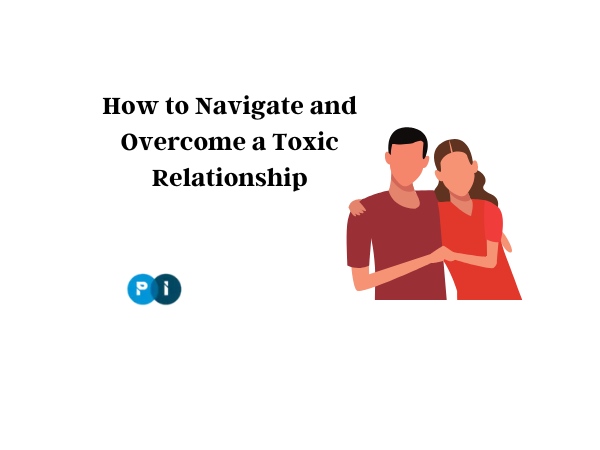
Relationships are an essential part of our lives, and they can bring a lot of joy and happiness. However, not all relationships are healthy, and some can be downright toxic. Toxic relationships can cause emotional and mental distress, which can affect your overall well-being. Navigating a toxic relationship can be challenging, but it is essential for your mental and emotional health. In this article, we will discuss how to navigate a toxic relationship and take care of your mental and emotional health.
[content-egg-block template=offers_grid]
Contents
What is a Toxic Relationship?
A toxic relationship is a relationship that is emotionally and mentally damaging to one or both partners. It can be characterized by emotional abuse, physical abuse, manipulation, control, and lack of respect. In a toxic relationship, one partner tries to control the other, and the relationship becomes a power struggle. The toxic partner may be jealous, possessive, or critical, and they may try to isolate their partner from friends and family.
Signs of a Toxic Relationship
It’s essential to recognize the signs of a toxic relationship. Here are some signs that you may be in a toxic relationship:
- Your partner tries to control you, and you feel like you can’t do anything without their permission.
- Your partner is jealous and possessive, and they try to isolate you from friends and family.
- Your partner is critical and belittles you, and you feel like you can never do anything right.
- Your partner is physically or emotionally abusive, and you feel scared or anxious around them.
- Your partner blames you for everything and never takes responsibility for their actions.
- Your partner gaslights you, making you doubt your own perceptions and feelings.
If you recognize any of these signs, it’s time to take a closer look at your relationship and consider whether it’s toxic.
How to Navigate a Toxic Relationship
Navigating a toxic relationship is never easy, but it is possible. Here are some tips for navigating a toxic relationship:
Recognize the Problem
The first step in navigating a toxic relationship is recognizing the problem. You need to acknowledge that your relationship is toxic and that it’s affecting your mental and emotional health.
Set Boundaries
Setting boundaries is essential in any relationship, but it’s especially crucial in a toxic one. Boundaries are limits that you set for yourself and your partner. These boundaries can help you maintain your self-respect and protect yourself from emotional harm.
Communicate Effectively
Communication is key in any relationship, but it’s particularly important in a toxic one. Effective communication can help you express your feelings and needs while avoiding arguments and conflict.
Seek Professional Help
If you’re struggling to navigate a toxic relationship, seeking professional help can be beneficial. A therapist can help you process your emotions, develop coping strategies, and set goals for yourself.
Take Care of Yourself
Taking care of yourself is essential when you’re in a toxic relationship. Self-care activities such as exercise, meditation, and spending time with friends can help you manage stress and improve your mental and emotional health.
Conclusion
Navigating a toxic relationship is never easy, but it is possible. It’s essential to recognize the signs of a toxic relationship and take steps to protect your mental and emotional health. Setting boundaries, effective communication, seeking professional help, and taking care of yourself are all essential steps in navigating a toxic relationship. Remember, you deserve to be in a healthy and happy relationship, and it’s never too late to make a change.
FAQs
Q: Is it possible to save a toxic relationship?
It is possible to save a toxic relationship, but it requires both partners to acknowledge the problem and make changes.
Q: Can a toxic relationship affect my mental and emotional health?
Yes, a toxic relationship can have a significant impact on your mental and emotional health. It can cause anxiety, depression, low self-esteem, and other mental health issues. It’s important to take care of your mental and emotional health and seek professional help if needed.
Q: How do you know if you’re in a toxic relationship?
There are several signs of a toxic relationship, including constant criticism, manipulation, lack of respect, controlling behavior, and feeling drained or exhausted after spending time with your partner.
Q: Can a toxic relationship be fixed with therapy?
It’s possible to work on a toxic relationship with the help of therapy, but it depends on both partners’ willingness to change and put in the effort to improve the relationship.
Q: Should you stay in a toxic relationship for the sake of your children?
No, staying in a toxic relationship for the sake of your children can do more harm than good. Children can pick up on the negative energy and tension in the relationship, and it can affect their mental and emotional well-being. It’s important to prioritize your own mental and emotional health and consider what’s best for your children in the long run.
Q: What should you do if you’re in a toxic relationship?
If you’re in a toxic relationship, it’s important to prioritize your own mental and emotional health. You may need to set boundaries, seek professional help, or consider ending the relationship if it’s not improving. Remember that you deserve to be in a healthy and supportive relationship.




